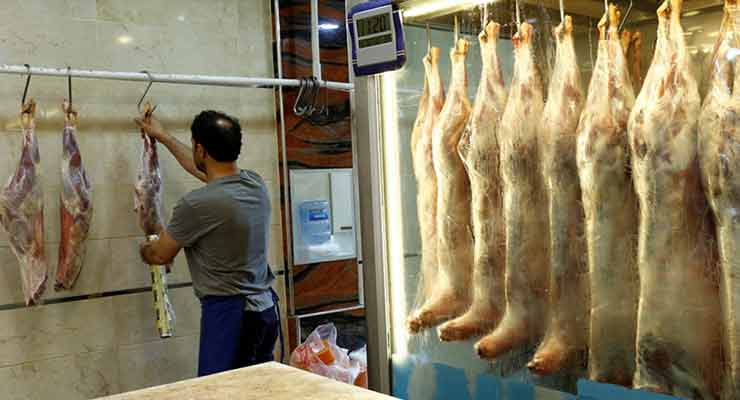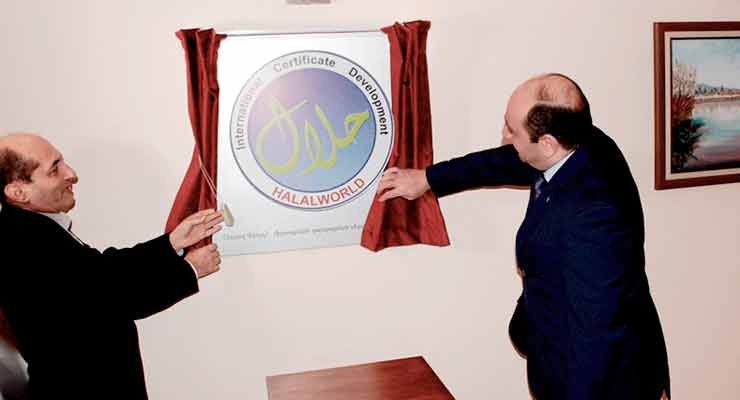Do you remember Lady Gaga’s meat dress from 2010? The famous singer appeared at an awards ceremony draped in flank steak to protest anti-gay policies in the United States. Intriguingly, the idea might have inspired, years later, smugglers trying to move meat from Georgia to Turkey.
On Nov. 15, several smugglers were caught crossing the border with 20 kilos (44 pounds) of raw meat wrapped around their chests, bellies and legs. In Georgia, if meat sells for $1.25 per kilo ($2.75 per pound), for example, the same amount costs $10 per kilo ($22 per pound) in Turkish markets. X-ray machines can’t detect meat, so no one knows how much meat has been smuggled into Turkey in the past.
After this event made headlines in Turkey, Customs and Trade Minister Bulent Tufenkci stated the obvious to the press, saying, “When the price of meat [in Turkey] goes down, smuggling will decrease.” Yet despite years of heated rhetoric about how to provide affordable meat, prices have persistently increased. From January 2003 until July 2017, meat prices rose 225%. Turks’ meat consumption decreased significantly. In desperation, the Turkish government started importing meat from cheaper — but also dubious — sources. For example, in December 2016, the Official Gazette announced Turkey was importing 500 tons of pork from Moldova. Although opposition newspapers, including Islamist publications, asked who would be consuming this much pork, the government offered no explanation. So now, Turks are asking: Are the products we are consuming actually halal (permissible under traditional Islamic law)?
Meat is the crux of all halal foods in Islam. Pork and all of its products (from skin to bone) are forbidden. Anything that comes into contact with a human body such as cosmetics, medicine or clothing should ideally comply with halal guidelines. In a world where processing most products involves ingredients from multiple sources, it becomes all the more difficult to know the purity of any goods. For example, gelatin, which is made from animal bones, skin and connective tissues, is used in a range of foods: yogurt, candy, cereals, cream cheese and sour cream, just to name a few.
So foods we may assume are vegetarian or vegan might very well contain meat in the form of gelatin. Pharmaceuticals and cosmetics need to meet halal guidelines, meaning they must not contain alcohol or impure animal byproducts. Even in the tourism industry, to receive halal accreditation, accommodations and facilities must conform to Islamic rules by having gender-segregated public facilities, including pools and beaches.
Al-Monitor contacted food and chemical engineers who work in the certification field and their main concern is the lack of a single, global halal standard. The Standards and Metrology Institute for Islamic Countries (SMIIC) was established in 2010 under the Organization of Islamic Cooperation (OIC). SMIIC has 36 members, including three observer states and is based in Istanbul. Yet not all 57 OIC members have ratified SMIIC’s statute.
In the meantime, Istanbul has heard a lot about the concept of halal recently. The World Halal Summit and OIC Halal Expo took place on Nov. 23-25, and then the city hosted SMIIC’s annual general assembly meeting Nov. 26. Also, parliament passed a law Nov. 1 establishing the Halal Accreditation Agency (HAK) and President Recep Tayyip Erdogan approved it Nov. 17.
HAK, with an initial setup staff of 50, is to operate under the Economy Ministry and is expected to be the sole entity to supervise private agencies that grant halal certification. Pro-government media presented the news briefly as an accomplishment and highlighted that the vast global halal market will be a lucrative one for Turkey.
One simple question the public posed was, “If the government just created this agency, were the halal goods we had before not actually permissible?” Economy Minister Nihat Zeybekci addressed this concern by saying, “There is no doubt that everything produced in Turkey is halal.”
He explained that the new agency was not established because of a domestic need, but rather to have a place in international markets, as 80% of the companies that seek halal certification are from non-Muslim countries. Turkey already has not one, but two existing agencies to provide oversight on all goods in Turkish markets. One is the Turkish Standards Institute, which started halal food certification in 2011 under SMIIC guidelines. In addition, the Turkish Accreditation Agency (TURKAK) provides accreditation services to institutions that assess halal conformity in Turkey.
Opposition party lawmakers — including those who are sometimes allied with the ruling party — were critical of the decision to create a new agency rather than expand TURKAK.
But the Ministry of Economy has argued that TURKAK can’t provide halal accreditation transactions because of concerns about European Union harmonization regulations. And although TURKAK is starting with a staff of just 50, the law allows for foreign offices to be opened, which could easily necessitate expanding the staff — and the budget. Given that government spending has risen to record-breaking levels, despite all the talk of belt-tightening, did Turkey really need this additional expenditure?
Since there are no universal halal guidelines, how would HAK serve Muslims in Turkey and abroad? For Turkish markets, in the past two decades, many nongovernmental organizations such as GIMDES and Dunya Helal Birligi have tried to provide information and certification for halal goods and services. For example, GIMDES head Huseyin Buyukozer was against importing anything but livestock. Yet Erdogan signed an agreement to import 5,000 tons of meat from Serbia in early October.
Now that HAK has been established, products that are exported from Turkey to all over the world have the opportunity to gain halal-certified seals. However, according to Zeybekci, seeking this certificate is not compulsory. So if you were to go into a store in New York to buy cookies from Turkey, and one package has a halal seal and one doesn’t, which one would you prefer?
Major food exporters take that question seriously. A senior industrial engineer who works for a big food company in Turkey told Al-Monitor on condition of anonymity, “This is another way to generate revenue for the government. Soon we fear you will see nationwide commercials advertising halal goods from bread to toothpaste, which means we will all have to fall in line and pay for halal certification. But then the price of all goods will have to increase. The government tried this with halal tourism, which failed due to [exorbitant] prices. But now, with food and other basic consumer goods, this is a huge market. What if the halal certificate is granted as a reward, or withheld as a punishment for dissent?”
Also, all taxpayers will have to foot the bill to support HAK, whether they use halal-certified food or not, similar to the way the Directorate of Religious Affairs’ budget is tax-supported, even though its services are exclusively for Sunnis.
So despite Erdogan’s supposed newfound love for the legacy of Mustafa Kemal Ataturk — the staunch secularist who founded modern Turkey — Erdogan’s struggle to please the Islamist base continues full speed ahead without any oversight.


 “Halal” Office was officially opened on Friday in Yerevan, attended by number of officials, Armenian Minister of Economic Development and Investments Suren Karayan among them.
“Halal” Office was officially opened on Friday in Yerevan, attended by number of officials, Armenian Minister of Economic Development and Investments Suren Karayan among them.